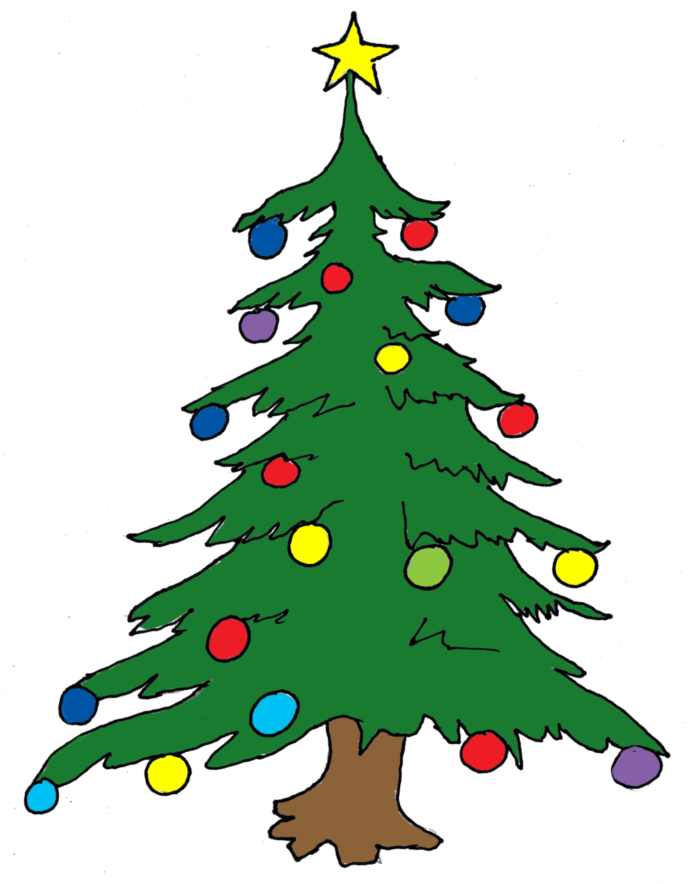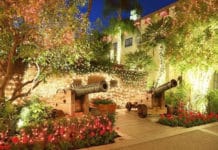By TR Robertson
You may think you know everything there is to know about the symbols of Christmas and customs surrounding this favorite seasonal holiday. The following article will tell you about many of the most common symbols of Christmas and where they came from as well as some of the more unusual customs surrounding the Christmas season.
Symbols of Christmas
Candles – the custom of putting candles in windows is an old one, dating back to the 1500’s in Europe. They were lit on Christmas Eve as a guide to the Christ child. Candles were also some of the first decorations put on Christmas trees in Germany.
Bells – The custom of bell ringing began during pagan winter festivals to drive away evil spirits. Today bells ring at Christmastime as a symbol of the happy news of Christ’s birth.
Mistletoe – Hundreds of years ago mistletoe was hung over their doors to keep away the evil spirits, some say at Celtic Druid cultures. Those who entered got a kiss as a symbol of love. People also believed that mistletoe could keep them healthy and their marriages happy.
Stars – The stars are the symbol of the Star of Bethlehem that led the Wise Men to the Christ child featured in monasteries of Franciscan monks in the 1600’s. They were also some of the first decorations put on the Christmas tree in homes.
Santa Claus – Santa is one of many gift bringers who deliver gifts around the world. An old fairy delivers Gifts in Italy called La Bafana. In Germany it was St. Nicolas, dating back to 260 AD. The American Santa is modeled from the famous cartoonist Thomas Nast who, 100 years ago, drew a series of cartoons depicting Santa wearing red and white clothing with a sack of toys. Some of the first drawings of Santa had him wearing a long green coat. The modern version appeared in drawings contained in Clement Moore’s poem “Twas the Night Before Christmas,” from 1820. The classic Santa we recognize today was popularized in Coca Cola ads beginning in 1031.
Creche – The first creche (manger scene) was created by St. Francis of Assisi in 1224. He used live animals and people in his scene. Today many manger scenes are smaller versions of this first depiction. Many are made of wood, China, or some other material. Bethlehem has many stores devoted to making and shipping manger scenes made from olive wood.
Poinsettia – In 1828, Dr. Joel Roberts Poinsett brought the first poinsettia to the United States from Mexico. He was serving as our first ambassador to Mexico. The legend is that a Mexican boy had no gift for the Christ child. As he knelt to pray, a beautiful flower appeared at his feet. This flower was the poinsettia and became his gift.
Stockings – Hanging stockings goes back to an old legend about St. Nicholas. The story says that St. Nicholas dropped bags of gold down the chimney for three girls who had no wedding gifts. The bags landed in the stockings hung above the fireplace to dry. Stockings were referenced in Clement Moore’s Christmas poem from 1820.
Cards – The custom of sending printed cards started in England in the 1840’s. Artist John Horsely created the first design and printed about 1,000 cards to deliver to people. Civil Servant Sir Henry Cole mailed cards in 1843 during the holiday season. Today more cards are sent at Christmas than at any other time in the year.
Wassail – Some say Wassail appeared during the time of the Anglo-Saxons in England. A Christmas feast would be held in someone’s home and guests would drink a hot punch and say “Wassel” as a toast, which means “to your health.” The name stuck for the drink and is referred to as Wassel today, both an alcoholic and non-alcoholic version. To “go a-wassailing “involves singing to neighboring homes after enjoying the drink.
Advent Wreath– The word advent means “the coming.” The advent season is the four weeks before Christmas. An advent wreath has four candles on it. People would light one candle each week leading up to Christmas. In 1839 in Germany Johann Wichern made wreaths children could use to count down the days until Christmas. Today Advent calendars appear in numerous styles, even Legos.
Holly and Evergreens – In ancient days, people in Northern Europe believed holly would ward off evil spirits. Christians came to believe that the berries stood for the blood Christ shed. The leaves stood for his crown of thorns. Evergreens stay green all year and bear fruit in the winter. For this reason, they are a symbol of never-ending life.
Ornaments – The first Christmas trees, in Germany, were decorated with real fruit, flowers and lighted candles. People began to realize these types of ornaments were heavy and dangerous. German glass blowers, like Hans Greiner, started making lighter glass balls to hang on the trees in the 1800’s.
Christmas Trees – There are many stories about how the first Christmas tree was trimmed. One story says that the famous German preacher, Martin Luther, started this custom in the 1500’s. It is said as he was walking home one starry night on Christmas Eve, he cut down a tree, took it home and decorated it with candles. People saw this and liked the idea and a custom was born.
Yule Log – People of long ago believed that burning a big log in their fireplace drove away evil spirits. Norse people in Norway burned logs to symbolize the return of the sun from long cold winters. Through the years a custom of cutting down a big tree, with help from friends, several weeks before Christmas to place in the home would bring good luck to those that helped. Burning a part of the tree in the fireplace became known as burning the yule log. It was referenced in a poetry collection by John Aubrey in 1686.
Christmas Customs from England
Up until the 16th century there were not specific foods related to the Christmas season. Large birds became popular for dinners, such as goose, swans, and peacocks. During the Tudor period, mince pies were served, made up with 50% meat. Drinking alcoholic beverages also became a popular activity around the dinner table. By the early 19th century, the excessive revelry around Christmas time had calmed down. The popular meat for the Christmas dinner became roast beef, served with plum pudding. Most people would have Christmas dinner at 5pm on Christmas Day.
The modern Christmas dinner is said to have come from the Victorian period. Queen Victoria adopted the modern style in the 1870’s. Her Christmas dinner for the guests consisted of roast beef, woodcock pie, a game pie, a stuffed boar’s head, mince pies and a boiled turkey. Christmas dinners from the 1940’s became much simpler in England during times of shortages. Fruit bowls were replaced with lots of homegrown vegetables and Mock meat dishes were served. Rabbits and chicken also replaced beef on tables.
Today, in the UK, only about 70% of the people eat turkey. Raised pies, glazed vegetables, hearty stews, and rich ice cream is served in many homes. Still, the average Christmas meal is around 5,000 calories. Americans follow many of the English customs as well as customs from other countries around the world. One local T.V. reporter said her family served chicken curry one Christmas and everyone loved the meal. When I worked at Carlsbad High, one of the cafeteria employees brought in homemade tamales for the holiday season, a popular holiday meal from Mexico. It all sounds good to me.
One occurrence that led to a push to control and in some cases legislate the excesses of Christmas celebration occurred at West Point Academy in 1826. Trainee cadets snuck in whiskey and run to spike the eggnog which led to a large number of cadets fighting, firing guns, and breaking windows around the campus. Twenty men were court-martialed for participating in the Eggnog Riot.



















